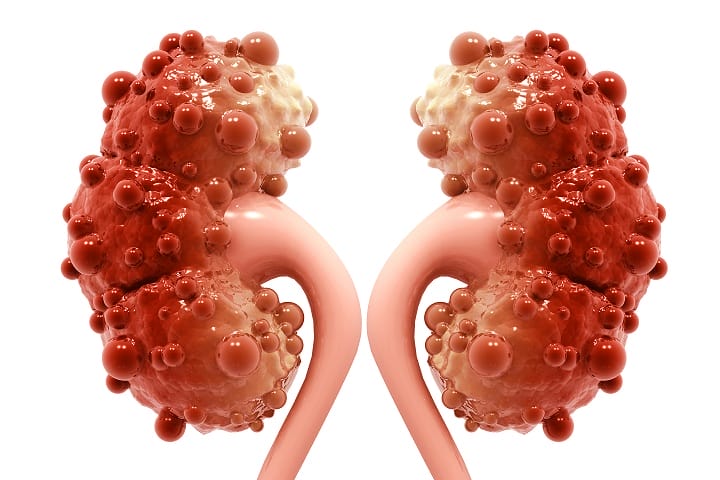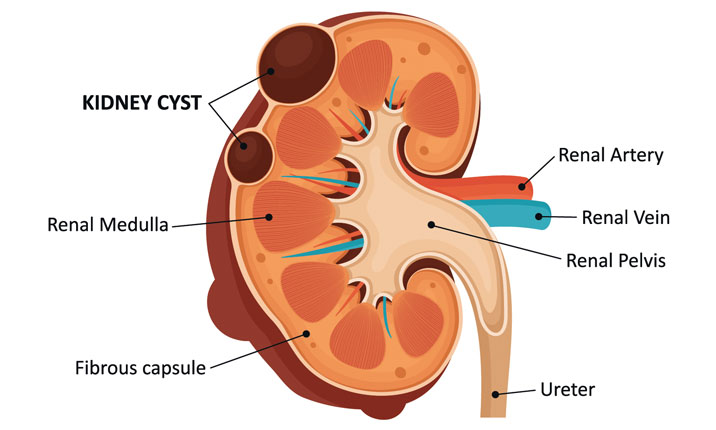Living with pain, especially the pain that has been continuing for a long time, can be very challenging. If you are suffering from pain in your sides or back, It may be associated with a urinary tract infection, a kidney stone or a malignancy. Pain is also a common symptom for people with polycystic kidney disease natural treatment.
What is the difference between acute and chronic kidney pain?
Acute pain occurs very quickly and is often found as a sharp pain. People with autosomal dominant treatment of proteinuria in ayurveda may get acute pain if they have cysts and kidney stones. Pain can also be observed when the cysts burst or when there is a urinary tract infection.
As ADPKD progresses, due to the problems associated, acute pain can be observed. And the good news is that acute pain usually improves within a few days of treatment, while chronic pain is difficult to deal with.
Chronic pain has been observed for a long-term duration of months or years. It may be a feeble pain, and you can observe a nagging discomfort or dull ache, but it can be severe, too. The severe pain could be as much as a stabbing pain.
Due to multiple cysts in the kidneys, the size of the kidney enlarges, and thus chronic pain is observed in people with ADPKD. These enlarged kidneys push other organs and change your posture. Therefore you might feel the pain in your sides, lower back or abdominal region.
Around 60 percent of people suffering from ADPKD have chronic pain. It is slightly difficult to treat, especially in cases where the cause cannot be resolved. However, many different approaches can help to reduce chronic pain.

How will your pain be investigated?
It is very important to identify the cause of kidney pain. As it could be very helpful in treating your kidney problem. Your doctor will examine you and suggests you do some tests to find the cause of your pain.
Post assessment, if your doctor thinks that your pain could be linked to your ADPKD, the tests he may suggest includes:
- A blood test
- Urine test
- Scan of your kidneys
- Fluid sample from the cyst
What should you do if you are in pain?
If you observe severe sudden pain and you might look for urgent medical care. This might signify a serious problem, such as an infection in the kidney or the bursting of a cyst.
If you have chronic pain that is suddenly getting worse or is not manageable with simple household treatments, you must visit your GP or kidney specialist promptly. They will promptly investigate the cause of your pain and recommend appropriate treatments.
How is acute pain from ADPKD treated?
One can get relief from acute kidney pain once the reason is found. For example, you may need immediate treatment if you are found with a kidney stone, cyst burst or bleeding cyst, or severe urinary tract infection. During the treatment, to provide you with immediate relief, your doctor may give you a short course of painkillers to reduce the pain when needed.

How is chronic pain treated?
Some people with kidney cysts pain are recommended to take a medicine called tolvaptan. Kidney specialists or nephrologists might prescribe Tolvaptan to slow the growth of kidney cysts. As the growth and size of the cyst decreases, patients find a reduction in pain too.
Surgery is also considered for people with very large cysts or the size of the kidneys causing severe pain. Kidney surgery, such as removing a large cyst, can be complicated, and the outcomes aren’t guaranteed. One should ask your surgeon or kidney specialist to discuss the effect and success of the surgery and whether the surgery would reduce your pain and the risks involved. If surgery is not appropriate or you are not in agreement to go for surgery, other approaches can help you to manage your pain. These other approaches can be useful for people who already had surgery. This therapy is known as ayurvedic treatment for polycystic kidney disease.
Pain management Tips
If it’s impossible to find or resolve the cause of your pain with allopathic medicines. But, there are various treatments and techniques that can reduce the impact of pain. For this, Ayurveda can be the best option. It can take time to show the best result, so be patient.
Ayurveda is a medical science that focuses on the root cause of the disease and works on the body’s purification and rejuvenation. Ayurveda suggests that chronic and acute conditions start with an imbalance in the body’s doshas. This science uses natural methods to cleanse and detoxify the body and then works on restoring balance.

At Karma Ayurveda, in Polycystic kidney disease treatment in ayurveda, you can expect a personalised treatment plan that has been designed keeping in mind your disease and needs. This plan includes dietary changes, lifestyle modifications, herbal remedies and ayurvedic medicines online store. These in conglomeration help to purify the blood and remove toxins from the body.
Karma Ayurveda also recommends eating certain foods that are helpful in repairing damaged kidneys. The individualised diet plan is also supportive of renal health.
Additionally, Karma Ayurveda also guides patients in reducing exposure to environmental toxins that may impact renal health. With proper guidance and dedication to their treatment plan from Karma Ayurveda, patients can see a remarkable improvement in their kidney health over time.


Does Wei Life Balance Pills help the Kidneys and body?